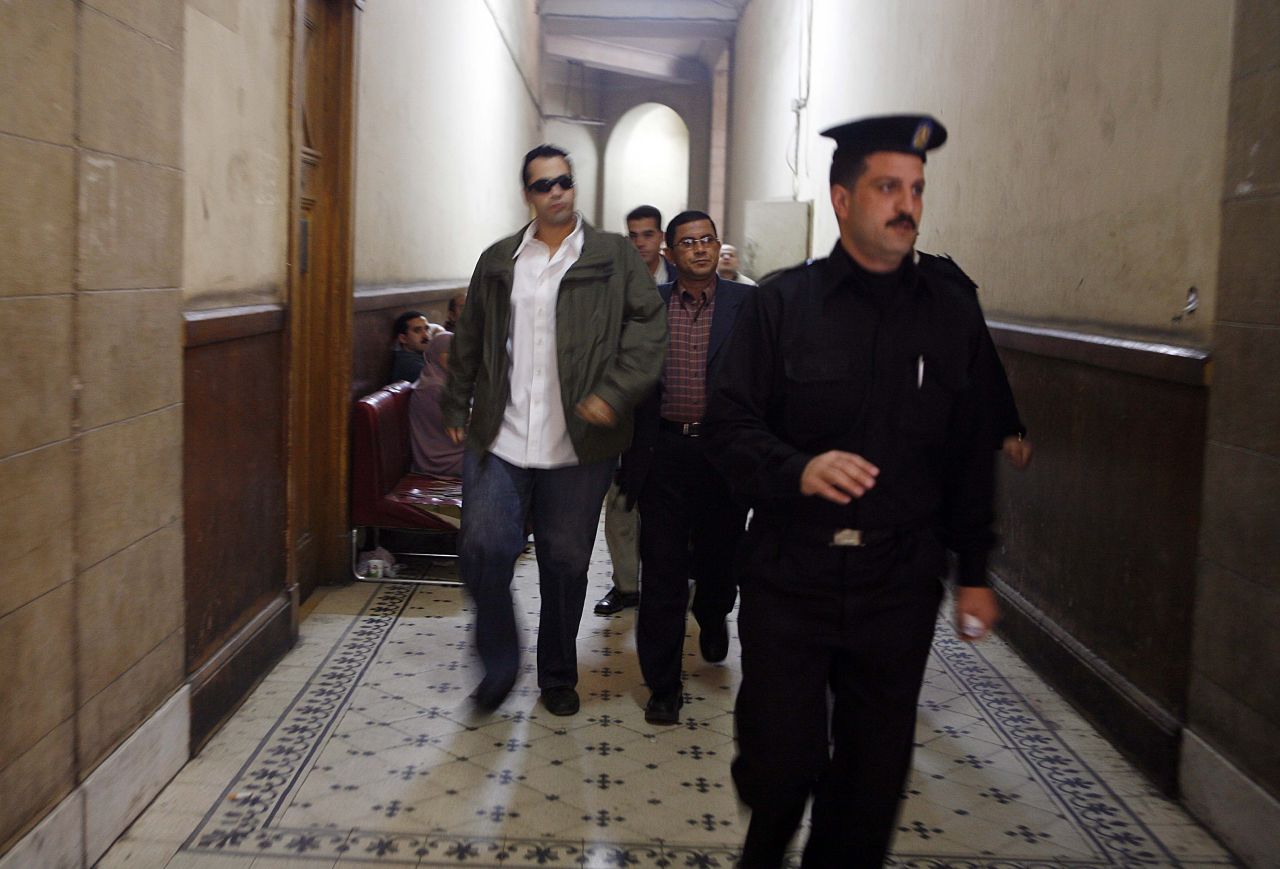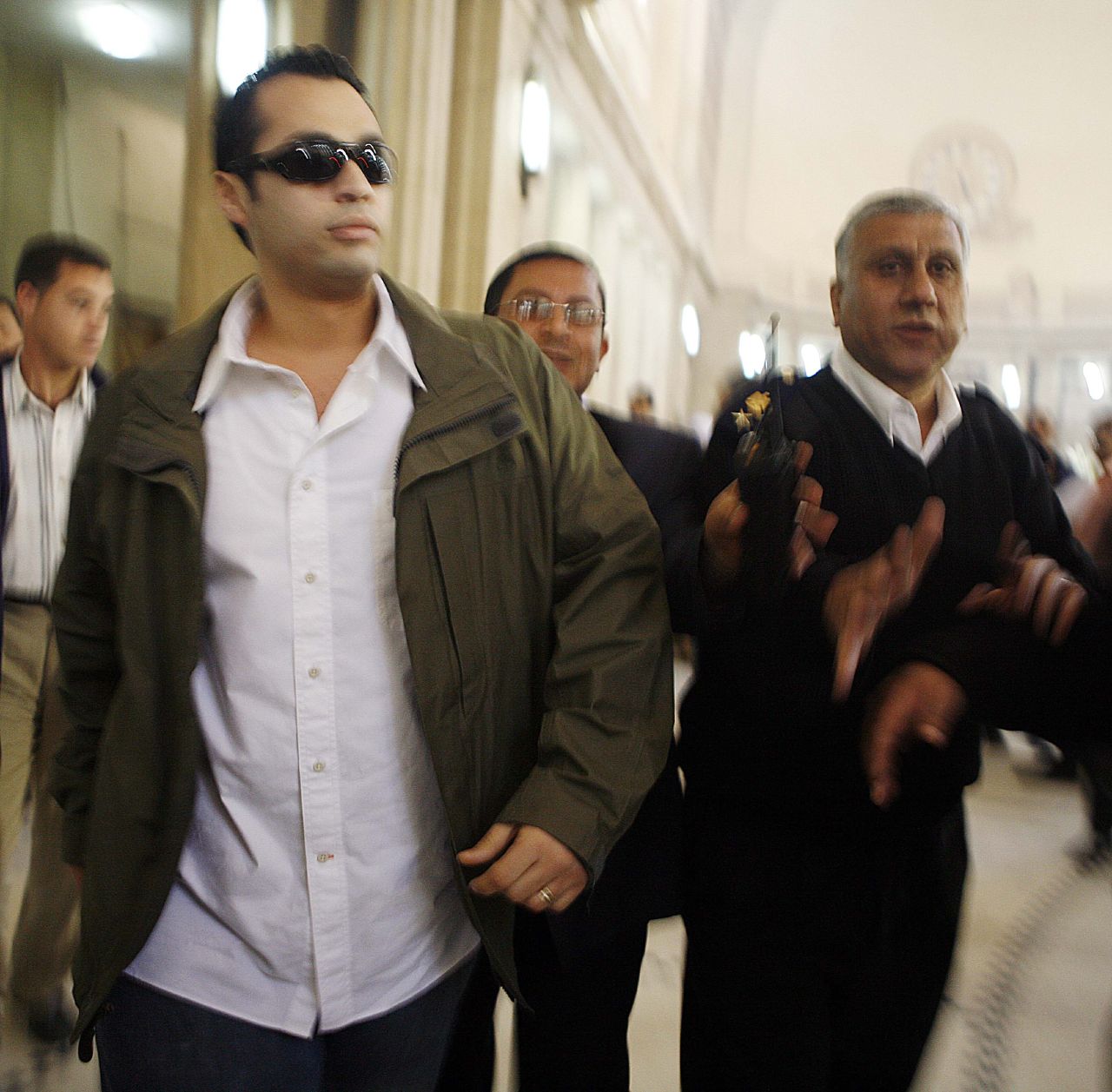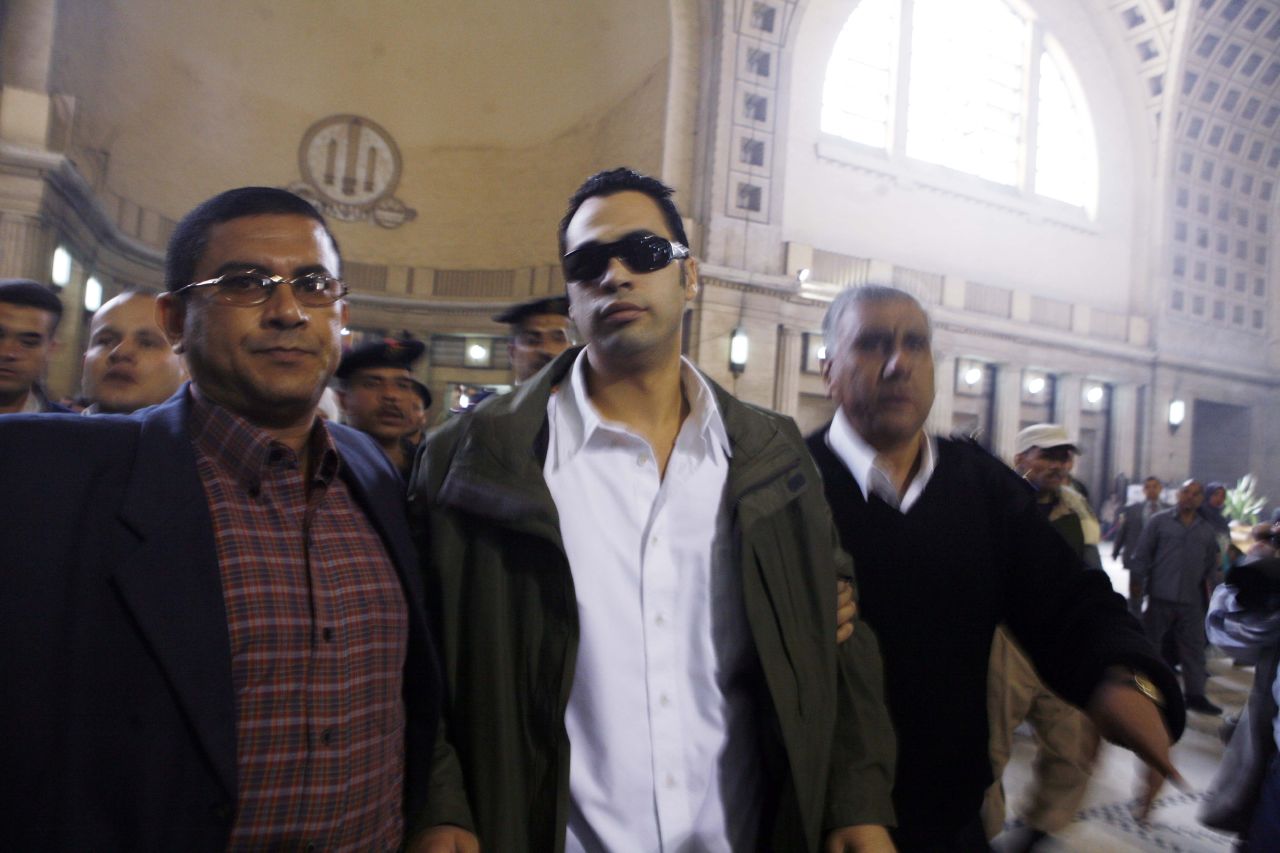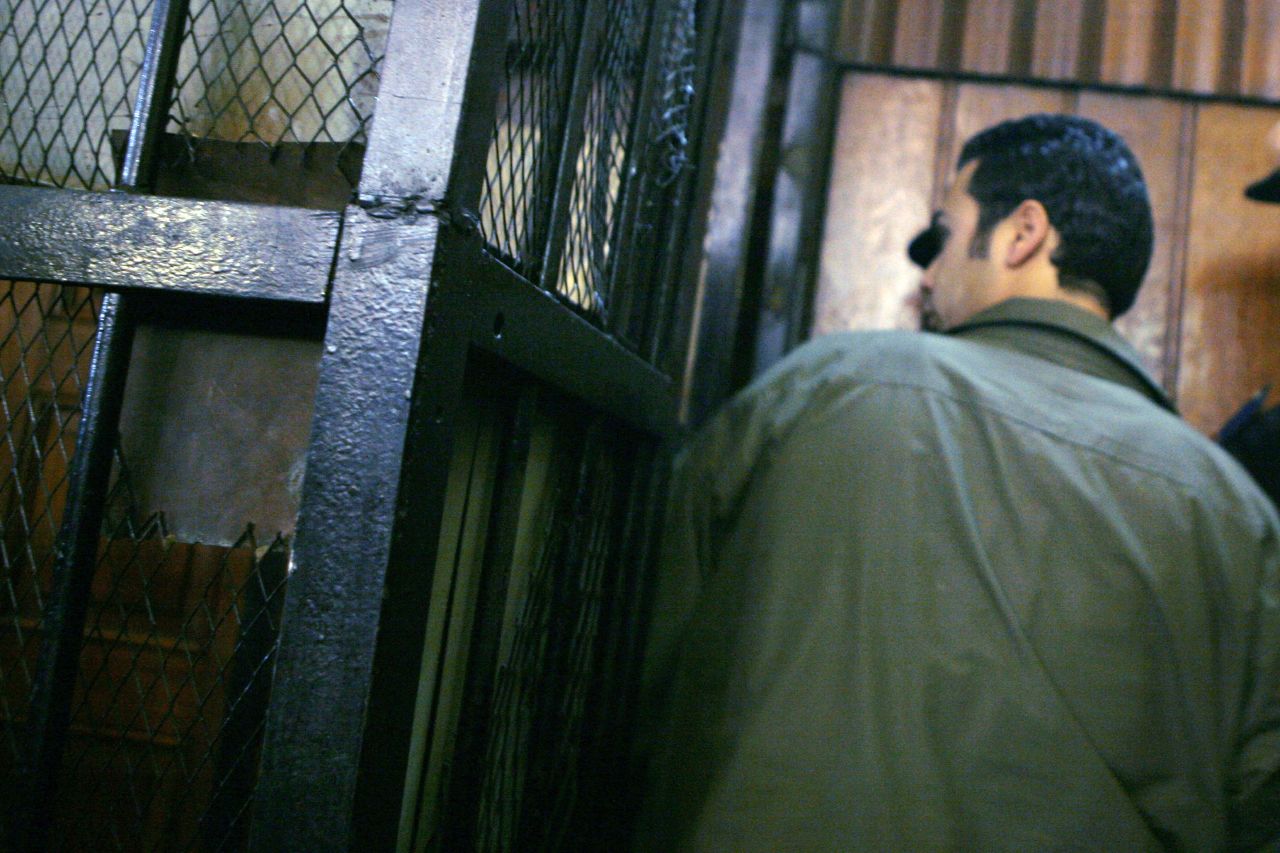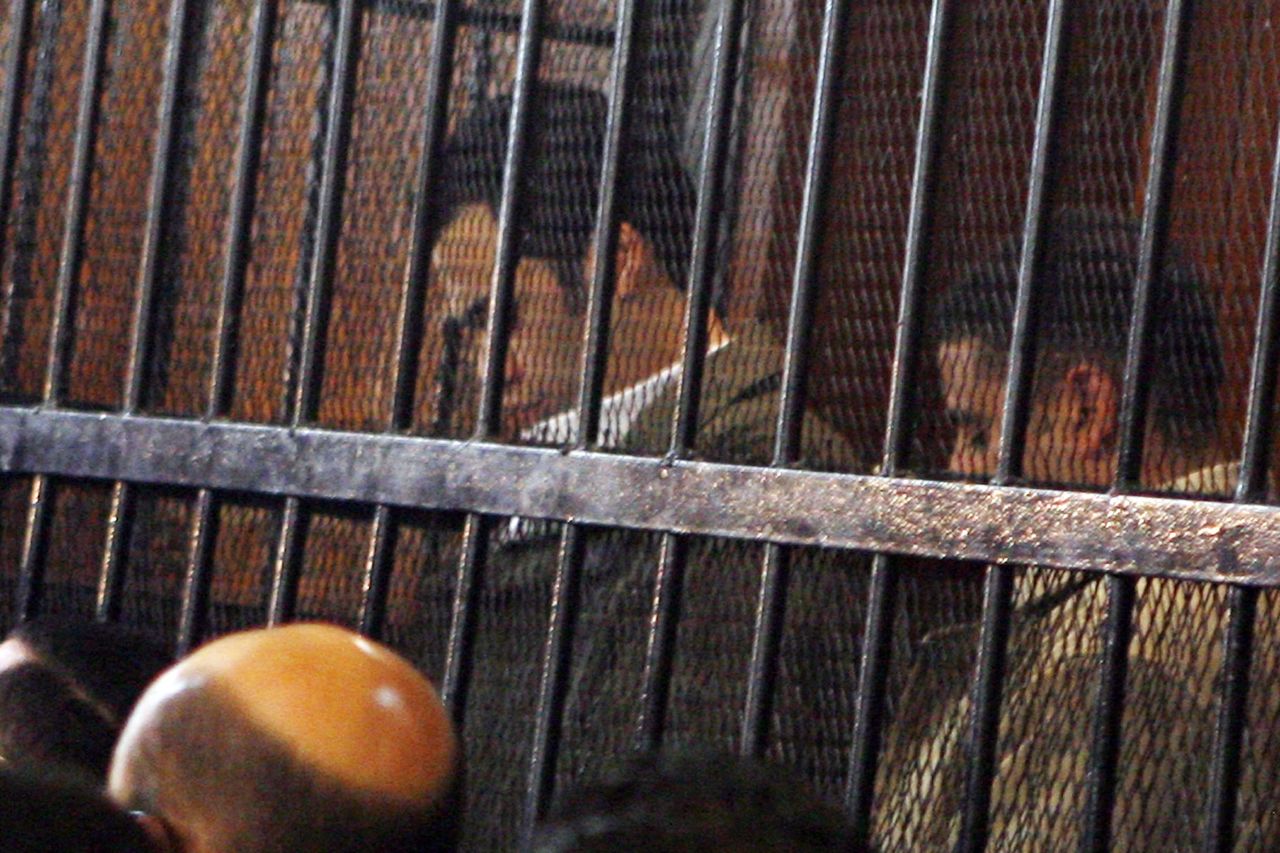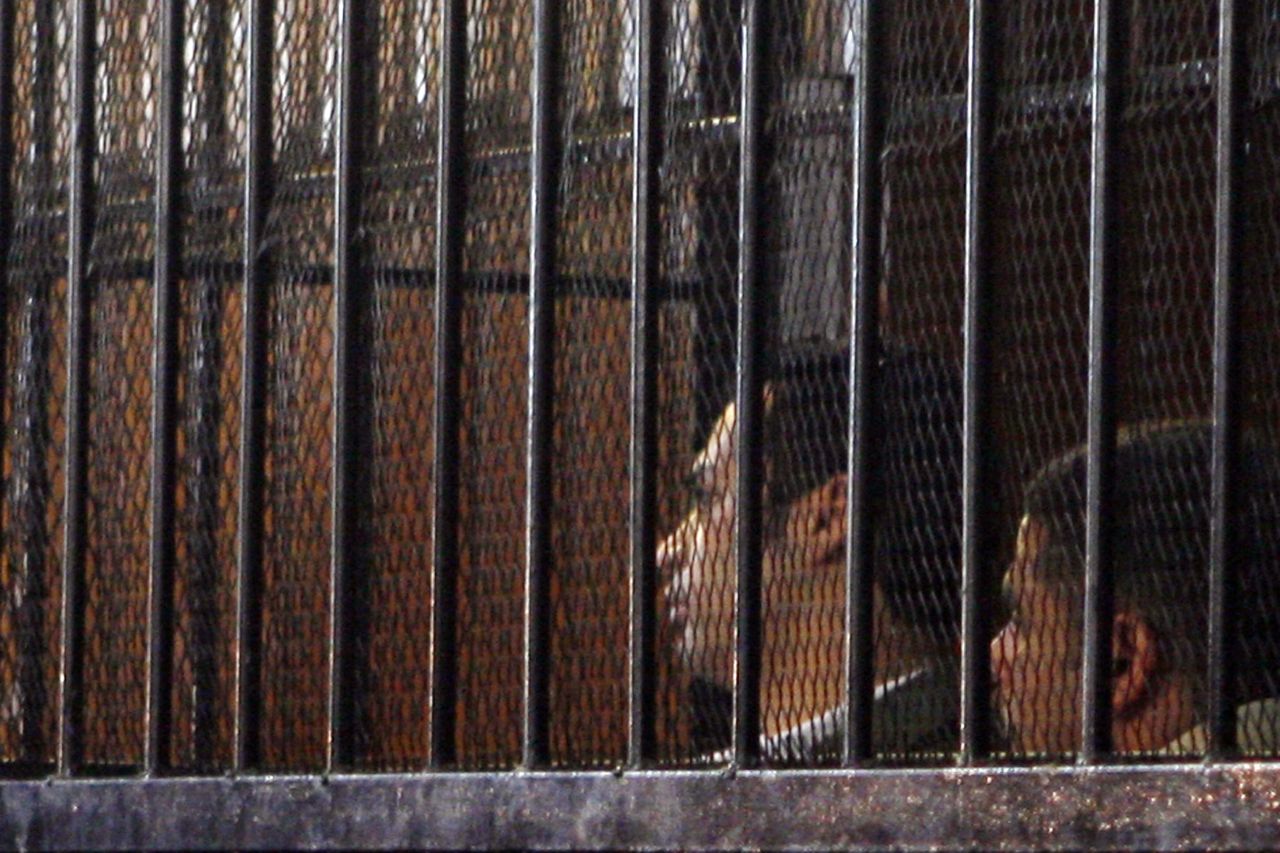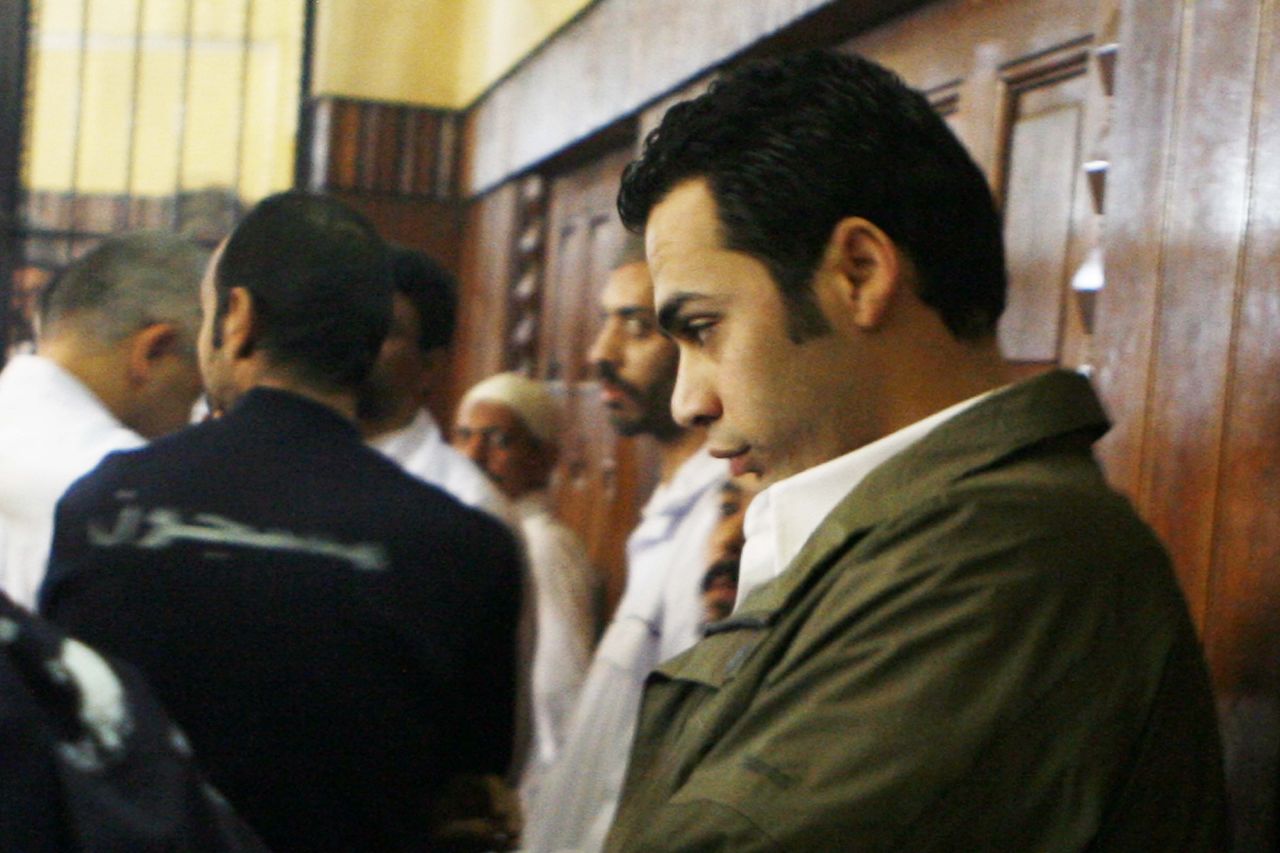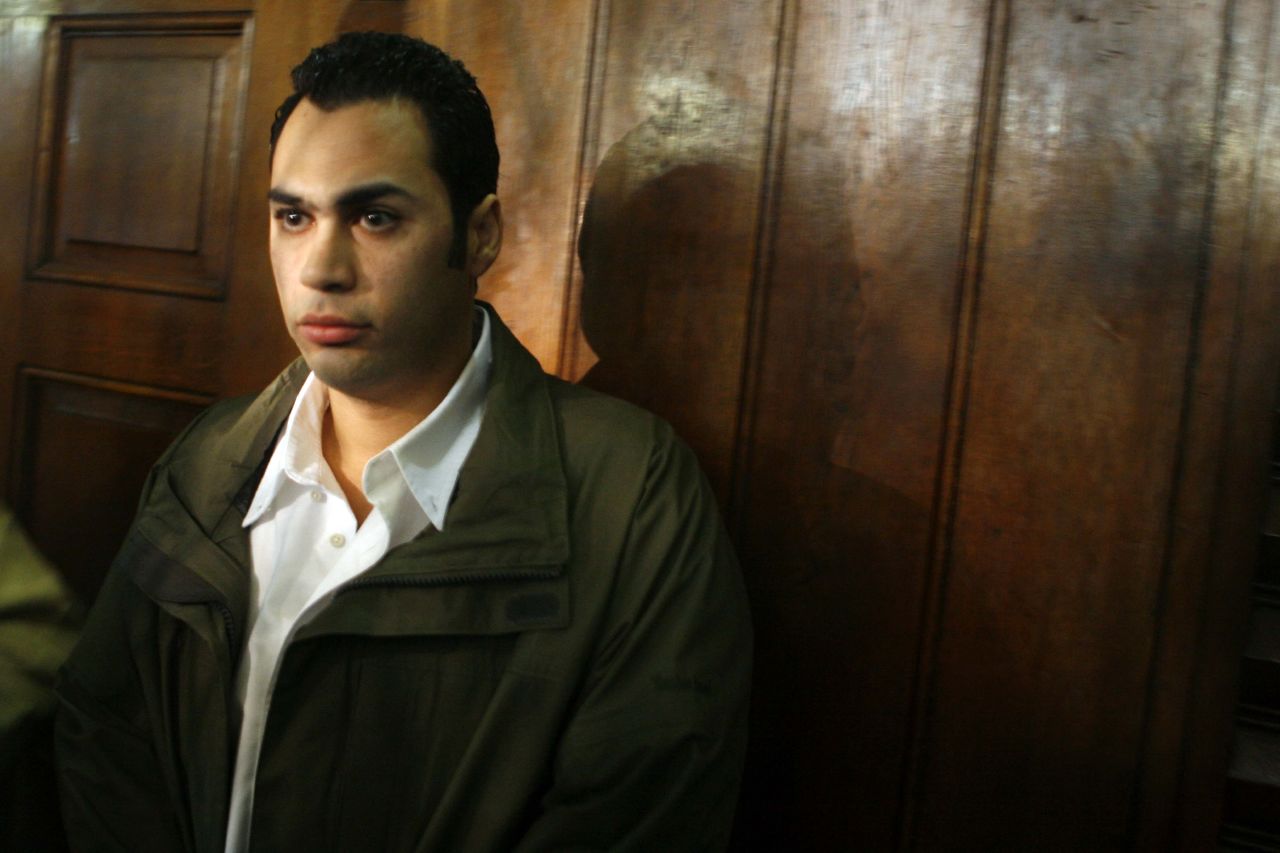Blogger Ahmad Sherif sent me the following tribute to Bulaq el-Dakrour Police torture victim Emad Kabeer:
Tag: videogate
VIDEOGATE: Bulaq torturers’ trial adjourned; Imbaba officer acquitted; Corporal sentenced to one year in jail
The trial of Police Captain Islam Nabih and Corporal Reda Fathi–who tortured and sodomized driver Emad Kabeer in Bulaq el-Dakrour Police Station–has been adjourned today to 2 April 2007.
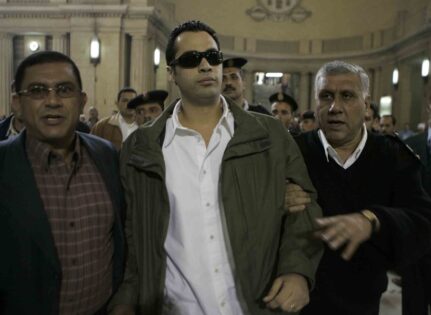
Nabih and Fathi showed up with a battalion of lawyers, who claimed the torture video was fabricated. Nabih’s family tried to intimidate photographers and ban them from photographing the torturer in court. I spoke with Nasser Amin, Emad’s lawyer, who said his client was still locked up in Damanhour Prison, and expected to be released either 25th or 26th of this month.
Photographer Amr Abdallah was present at the court room, and took those photos today:
In other developments, a court sentenced Corporal Ahmad Abdel Fattah of Imbaba Police Station last Wednesday to one year in prison, for abusing 19-year-old Ihab Magdi Farouk. As for the officer, Lieutenant Kareem Abdallah Abdel Mohsen, whom Ihab accused of supervising the beatings and the (unfilmed) torture, he was acquitted!
Meanwhile, a new video of Egyptian police brutality has surfaced online. In the video, a police corporal (referred to in the video as “Abdel Rassoul”) could be seen hitting a detainee on the back of the neck and slapping him on the face. The person who’s filming could be heard saying: “That’s weak Abdel Rassoul…” encouraging the corporal to hit the detainee stronger.
UPDATE: Here’s a report by Paul Schemm:
Egypt police lawyers claim sodomy video faked
CAIRO, March 3, 2007 (AFP) – Lawyers for two Egyptian police officers accused of sodomising a detainee in torture shown on a widely distributed video told a court on Saturday that the film was a forgery, said a security source.
Officers Islam Nabih and Reda Fatih appeared at Giza Criminal Court with some 20 lawyers who argued that not only was the video a forgery but their clients were not in the police station the day the incident was alleged to have happened.
In their argument, the lawyers referred to the case of Howayda Taha, a reporter for satellite network Al-Jazeera, who was arrested with video tapes of reenactments of torture scenes for a documentary on which she was working.
She is facing charges of forging tapes and “harming Egypt’s national interest”.
According to press accounts at the time of the police officers’ arrest in December, prosecutors brought in experts to ascertain the veracity of the abuse video and identify the policemen’s voices.
The officers’ defence team has asked for another expert to check the video.
In January 2006, minibus driver Imad al-Kabir intervened in a fight between his cousin and a police officer, for which he was arrested and taken to Bulaq al-Dakrur police station and tortured, according to his testimony to the New York-based Human Rights Watch.
The abuse was filmed with a mobile phone camera.
“The officers circulated the video among other microbus drivers in his neighborhood and told him that they had done so to ‘break his spirit’ and to send a message to the other drivers,” said the organization in a statement.
The video began to appear on blogs and websites in Egypt around November 2006, sparking an outcry and extensive media coverage, and resulting in the arrest of the two police officers alleged to have taken part.
“The fact that the people who tortured Imad al-Kabir videotaped their crime suggests that they thought they could get away with it,” Sarah Leah Whitson, Middle East Director at Human Rights Watch, said earlier this year.
“The government must end the culture of impunity that gave them this idea.”
Kabir, for his part, was subsequently sentenced to three months in prison in January for “resisting authority.”
The case against the police officers was adjourned until April 2.
